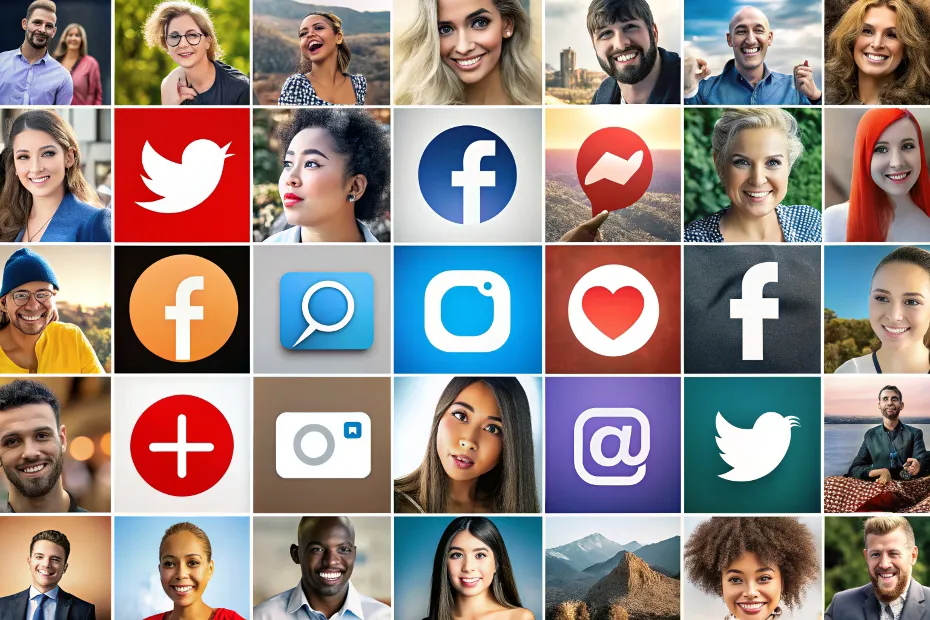In today’s digital age, social media platforms have become ubiquitous, profoundly influencing various aspects of our lives, including motivation and self-image. Understanding the intricate dynamics between social media usage and its impacts on individuals’ motivation levels and self-perception is crucial for fostering a healthier relationship with online platforms and cultivating robust mental well-being.
Definition and Importance of Motivation and Self-Image
Motivation serves as the driving force behind individuals’ actions, goals, and aspirations, influencing their willingness to pursue endeavors and overcome obstacles. On the other hand, self-image encompasses individuals’ perceptions, beliefs, and feelings about themselves, shaping their overall sense of identity and worth. Both motivation and self-image play pivotal roles in shaping individuals’ mental and emotional well-being, significantly impacting their quality of life and satisfaction levels.
How Social Media Affects Motivation
Positive Impacts
Social media platforms can serve as valuable sources of inspiration, encouragement, and support, fostering a sense of community and connectivity among users. Through motivational content, success stories, and peer encouragement, individuals can find the motivation to pursue their goals, embrace personal growth, and celebrate their achievements.
Negative Impacts
However, the pervasive nature of social media can also lead to detrimental effects on individuals’ motivation levels. The constant exposure to meticulously curated and often unrealistic portrayals of success, beauty, and happiness may instill feelings of inadequacy, self-doubt, and comparison. As individuals compare their lives and achievements to those depicted on social media, they may experience a decline in motivation, feeling overwhelmed by perceived disparities between their reality and the idealized online personas.
The Relationship between Social Media and Self-Image
Influences on Body Image
One of the most prominent areas where social media exerts its influence is body image perception. Platforms inundated with edited and filtered images showcasing unrealistic beauty standards can foster feelings of dissatisfaction, insecurity, and body dysmorphia among users. The relentless pursuit of unattainable physical ideals propagated on social media can contribute to negative self-perception and diminished self-esteem.
Self-Esteem
Moreover, the quest for validation and approval on social media platforms can significantly impact individuals’ self-esteem. The pursuit of likes, comments, and followers as measures of social acceptance may lead individuals to equate their self-worth with external validation, perpetuating a cycle of self-doubt and validation-seeking behavior.
The Role of Comparison in Social Media
Impact on Motivation
The pervasive culture of comparison cultivated by social media platforms can undermine individuals’ motivation by fostering feelings of inadequacy and discouragement. As individuals incessantly compare their accomplishments, appearance, and lifestyles to those of their peers or influencers, they may experience a sense of disillusionment and stagnation, hindering their motivation to pursue their goals.
Impact on Self-Image
Similarly, incessant comparison to idealized representations on social media can distort individuals’ self-perception, leading to negative self-image and diminished self-confidence. The constant exposure to carefully curated and often embellished depictions of success and happiness may engender feelings of inferiority and unworthiness, eroding individuals’ confidence in their abilities and uniqueness.

Coping Mechanisms for Negative Effects
Building Resilience
Developing resilience is crucial for navigating the challenges posed by social media and safeguarding individuals’ mental well-being. Cultivating a growth mindset, focusing on personal progress rather than external validation, and embracing failures as opportunities for growth can bolster individuals’ resilience in the face of adversity.
Self-Awareness and Digital Literacy
Enhancing self-awareness and digital literacy empowers individuals to navigate social media mindfully and critically evaluate the content they consume. By developing a discerning eye for digital manipulations, misinformation, and idealized portrayals, individuals can mitigate the negative effects of social media on their motivation and self-image.
Strategies for Positive Use of Social Media
Promoting Self-Confidence
Seeking out authentic content, following accounts that promote self-acceptance and diversity, and engaging in meaningful interactions can foster a more positive online experience. By prioritizing self-expression over validation-seeking behavior and cultivating a supportive online community, individuals can boost their self-confidence and nurture a healthier self-image.
Fostering Authentic Connections
Prioritizing quality over quantity in social connections and nurturing genuine relationships can mitigate the detrimental effects of social comparison. Actively engaging with supportive communities, sharing vulnerabilities, and seeking out like-minded individuals can enrich individuals’ online experiences and foster a sense of belonging and authenticity.
The impact of social media on motivation
In conclusion, the impact of social media on motivation and self-image is multifaceted, encompassing both positive and negative influences. While social media platforms offer opportunities for inspiration, connection, and self-expression, they also pose challenges to individuals’ mental well-being through comparison, validation-seeking behavior, and unrealistic portrayals. By adopting coping mechanisms, fostering resilience, and leveraging positive strategies for social media usage, individuals can navigate the digital landscape more effectively and cultivate a healthier relationship with themselves and others.
FAQs
- How does social media affect self-esteem? Social media can impact self-esteem by promoting unrealistic beauty standards and fostering a culture of comparison, where individuals equate online validation with their self-worth.
- Can social media be beneficial for motivation? Yes, social media can serve as a source of inspiration and encouragement, providing motivational content and fostering a sense of community among users.
- What coping mechanisms can help mitigate the negative effects of social media? Building resilience, practicing self-awareness, and enhancing digital literacy are effective coping mechanisms for navigating the negative impacts of social media on motivation and self-image.
- How can individuals use social media positively? By seeking out authentic content, fostering genuine connections, and prioritizing self-expression over validation, individuals can leverage social media as a tool for personal growth and self-discovery.
- Is it possible to overcome social media-induced insecurities? Yes, overcoming social media-induced insecurities requires self-reflection, self-compassion, and a commitment to prioritizing one’s mental well-being over external validation.
- What role does media literacy play in mitigating the negative effects of social media? Media literacy empowers individuals to critically evaluate and interpret online content, enabling them to discern between reality and idealized portrayals. By enhancing media literacy skills, individuals can protect their self-image and well-being in the digital age.

